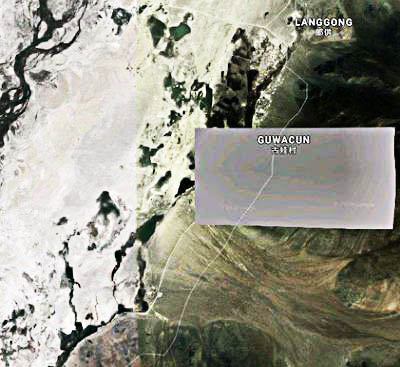by Thomas O’Dwyer

Truth may be the first casualty of war or, nowadays, of politics, but few of us would have thought of using a map to look for lies. But thanks to Google Maps and other geographic meddlers, there may now be fewer lies in a Donald Trump speech than on the face of the good Earth. It’s not hard to find places Google doesn’t want you to see, but not all are as obvious as its satellite image of a part of southern Tibet. There, the entire village of Guwacun lies under an unsubtle grey rectangle. Such geographical censorship goes far beyond pandering to mandarins in some Chinese ministry of paranoia. Take democratic, advanced, high-tech Israel, for example. Only low-resolution images of the entire country and the surrounding Palestinian territories are available online. Google alone is not to blame for this — America is. In 1997, the US government passed a law called the Kyl–Bingaman Amendment. This law prohibited American authorities from granting a license for collecting or disseminating high-resolution satellite images of Israel. The US mandated censorship of commercial satellite images for no other country in the world except Israel.
The largest global sources of commercial satellite imagery include online resources, such as Google and Microsoft’s Bing. Since they are American, the US has used the “Israel images amendment” as a powerful tool for suppressing information. Hence, images of Israel on Google Earth are deliberately blurred. Strangely, anyone in the world can zoom in on crisp and detailed pictures of the Pentagon or GRU headquarters in Moscow, but all one can see of Tel Aviv’s public central square and gardens is a fuzzy grey blur. This odd restriction has frustrated archaeologists and other scientists who depend on satellite imagery to survey areas of interest to their disciplines. It does, however, enable Israel to conceal practices in the occupied Palestinian territories that attract international censure. These include expanding Israeli settlements in the West Bank and Golan Heights, demolitions of Palestinian homes, and abuses of power by the military in clashes with Gaza. Read more »
